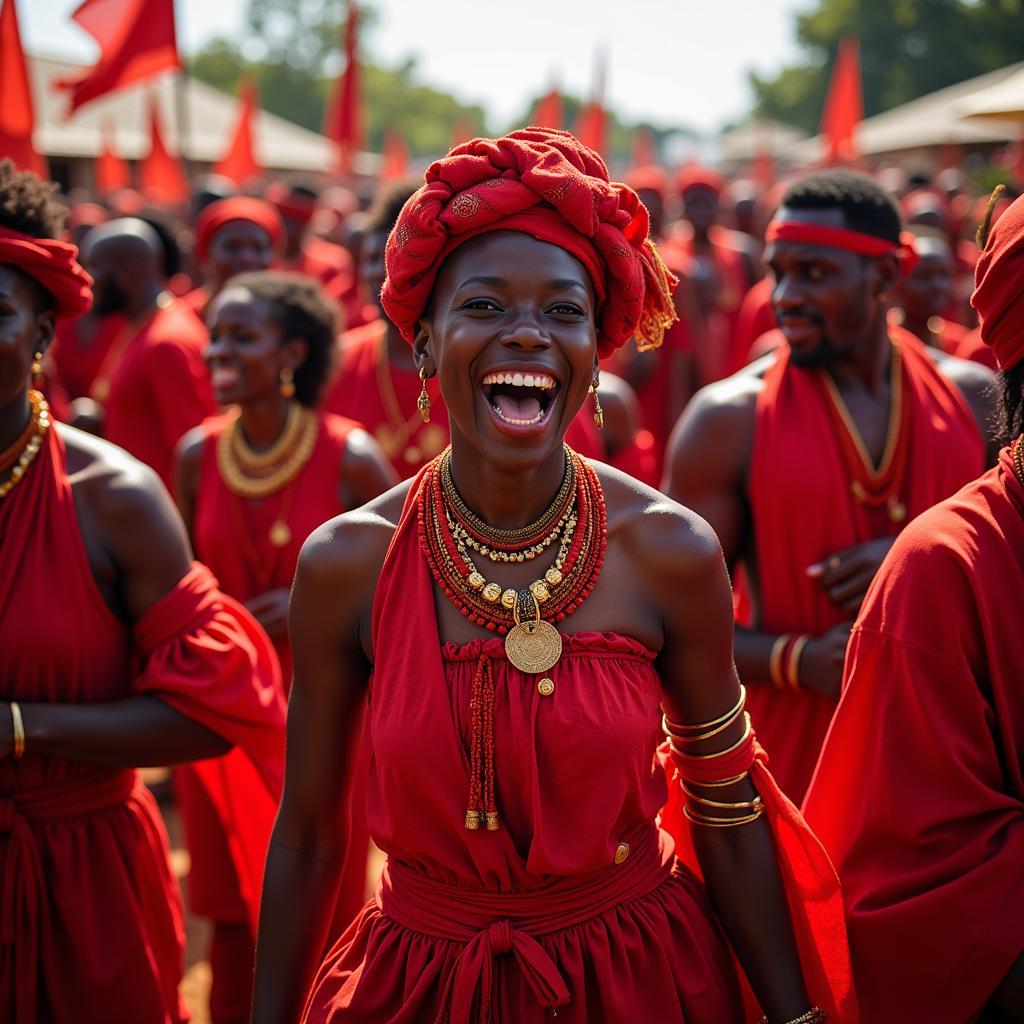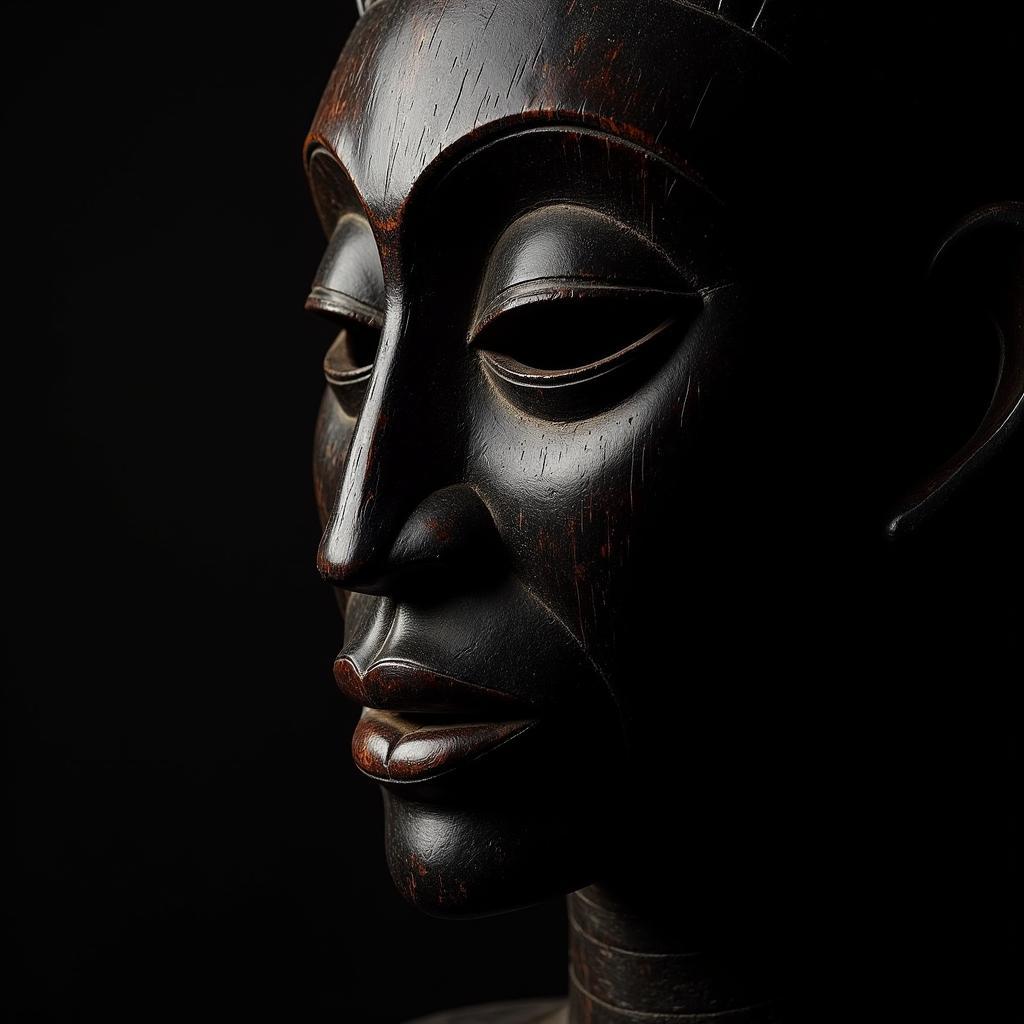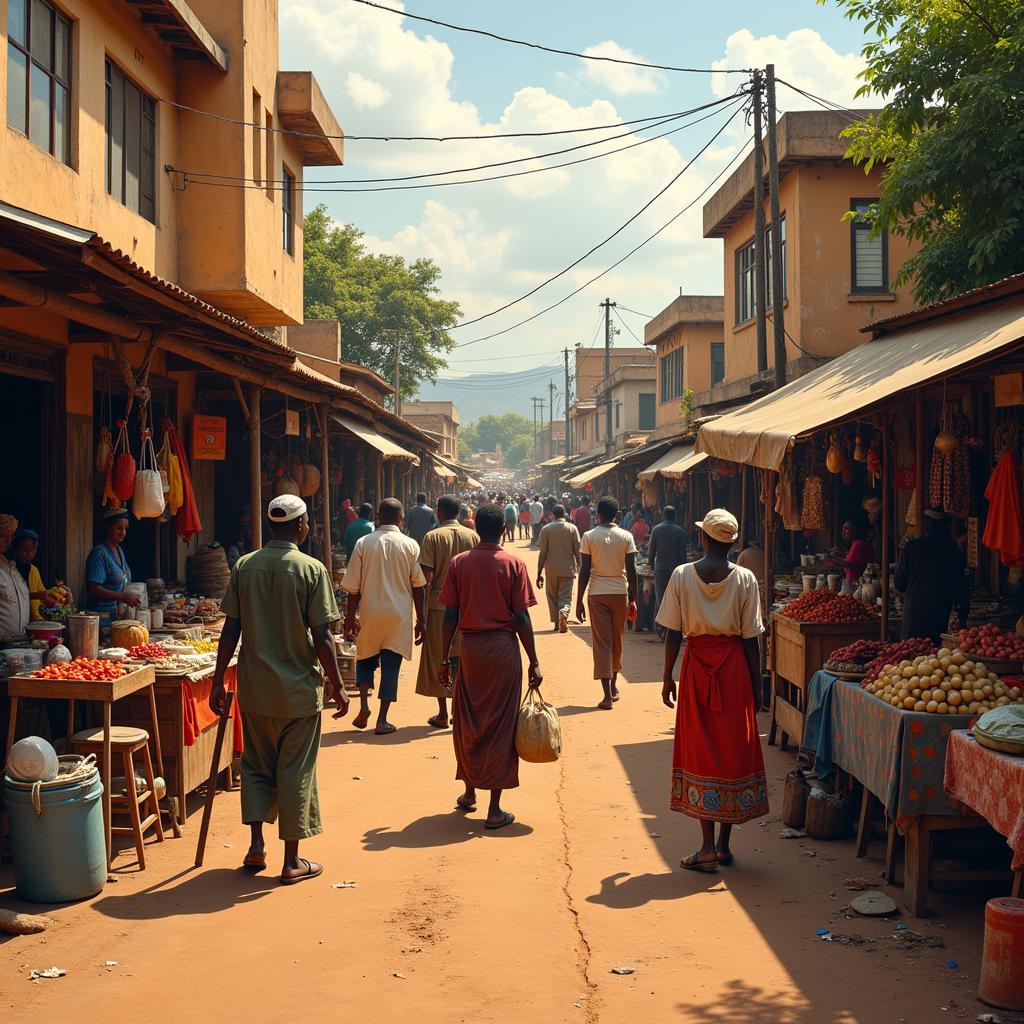African Colors and Their Meanings: A Vibrant Tapestry of Culture
African colors pulse with a life and meaning often unseen by the outside world. From the vibrant hues of traditional garments to the symbolic shades used in rituals and ceremonies, African Colors And Their Meanings tell stories of history, spirituality, and cultural identity. This exploration delves into the rich symbolism behind these colors, revealing a deeper understanding of the continent’s diverse cultures.
Unveiling the Symbolic Language of African Colors
Color plays a powerful role in African societies, going far beyond mere aesthetics. It’s a language in itself, communicating complex messages and reflecting deep-seated beliefs. Each color carries its own weight, interwoven with cultural narratives and spiritual significance. Understanding these meanings unlocks a deeper appreciation for African art, fashion, and traditions. For instance, red, often associated with danger in Western cultures, can represent everything from life and vitality to courage and sacrifice in various African communities. This nuanced understanding of African colors and their meanings is crucial to appreciating the continent’s cultural richness.
One fascinating aspect of color symbolism in Africa is its regional variation. While some colors hold universal significance across the continent, others carry unique meanings depending on the specific culture. This diversity adds another layer of complexity and intrigue to the study of African colors.
After this initial exploration, you might be interested in learning more about African accra print.
Red: The Color of Life, Death, and Everything In Between
Red, a powerful and evocative color, holds a multifaceted role in African symbolism. In many cultures, it represents life force, good health, and energy. It’s the color of blood, the essence of life itself. However, red can also symbolize danger, sacrifice, and death. This duality reflects the cyclical nature of life, encompassing both its joys and sorrows. In some communities, red is used in rituals to honor ancestors and connect with the spiritual realm.
 Red in African Ceremony and Ritual
Red in African Ceremony and Ritual
White: Purity, Spirituality, and Ancestral Connection
White, often associated with purity and innocence in Western cultures, takes on a spiritual dimension in many African traditions. It represents peace, goodness, and ancestral connection. In some cultures, white is the color of mourning, symbolizing the transition to the afterlife. It’s a reminder of the enduring presence of ancestors and the cyclical nature of existence. This deep connection to spirituality makes white a prominent color in religious ceremonies and rituals.
Black: Mystery, Power, and the Unknown
Black, the absence of light, holds a potent symbolism in African cultures. It represents mystery, the unknown, and the power of the night. In some traditions, black is associated with age, wisdom, and the ancestors. It signifies a deep connection to the past and the accumulated knowledge of generations. Black can also represent strength, resilience, and resistance.
 Black African Mask Symbolizing Power
Black African Mask Symbolizing Power
Are you curious about the meanings behind other colors? Let’s explore further!
Blue: The Sky, Water, and the Divine
Blue, the color of the vast sky and the deep ocean, carries significant meaning in African cultures. It symbolizes peace, tranquility, and the divine. In some traditions, blue is associated with water spirits and the life-giving power of rain. It represents hope, fertility, and the promise of abundance. Blue is often incorporated into traditional art and clothing, reflecting its importance in daily life. You can explore African designs photo to see how blue is incorporated into various art forms.
Green: Growth, Prosperity, and Harmony with Nature
Green, the color of lush vegetation, embodies growth, prosperity, and harmony with nature. In African cultures, it represents abundance, fertility, and the interconnectedness of all living things. Green is often used in rituals related to agriculture and the harvest, celebrating the life-sustaining power of the earth. It symbolizes the cyclical renewal of life and the importance of respecting the natural world.
 Green in African Landscape and Nature
Green in African Landscape and Nature
Yellow: Wealth, Royalty, and Spiritual Power
Yellow, the color of gold and sunshine, represents wealth, royalty, and spiritual power in many African traditions. It signifies high status, authority, and divine energy. In some cultures, yellow is associated with the sun god and the life-giving force of light. It’s a color of celebration, joy, and abundance. You might find it interesting to learn more about African tribal masks and the colors used in their creation.
African Lady Art and the Language of Color
African lady art often utilizes a rich palette of colors to convey complex messages about femininity, strength, and cultural identity. These vibrant artworks showcase the powerful role of color in expressing narratives and celebrating the beauty and resilience of African women. Explore african lady art to delve deeper into this captivating art form.
Conclusion: A Deeper Understanding of African Culture Through Color
African colors and their meanings offer a captivating glimpse into the rich tapestry of the continent’s diverse cultures. From the vibrant reds of celebration to the serene blues of spirituality, each color tells a story, connecting us to the heart of African traditions. By understanding the language of African colors, we gain a deeper appreciation for the continent’s artistic expression, spiritual beliefs, and cultural identity.
FAQ
-
What does the color red symbolize in African cultures? Red can symbolize life force, good health, and energy, but also danger, sacrifice, and death.
-
What is the significance of white in African traditions? White represents purity, spirituality, and ancestral connection.
-
What does black represent in African symbolism? Black symbolizes mystery, the unknown, and the power of the night, along with age, wisdom, and ancestral connection.
-
What is the meaning of blue in African cultures? Blue signifies peace, tranquility, and the divine, often associated with water spirits.
-
What does green symbolize in African traditions? Green represents growth, prosperity, and harmony with nature.
-
What is the significance of yellow in African cultures? Yellow represents wealth, royalty, and spiritual power.
-
Where can I find more information about African art and its meaning? You can explore more about african art meaning.
For further assistance, please contact us at:
Phone: +255768904061
Email: kaka.mag@gmail.com
Address: Mbarali DC Mawindi, Kangaga, Tanzania
Our customer service team is available 24/7.


